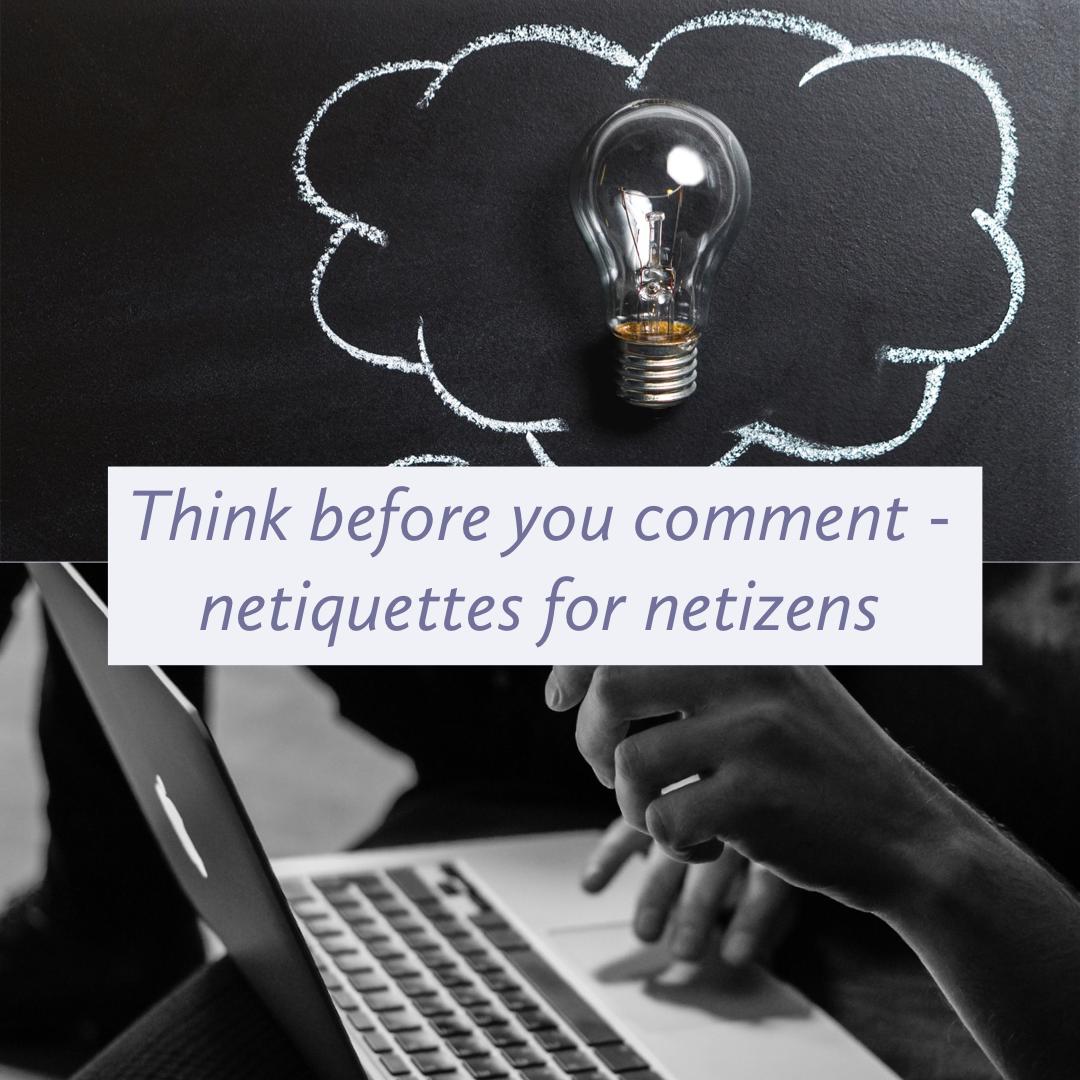
Abu Hurairah (May Allah be pleased with him) reported:
The Prophetﷺ said,
“He who believes in Allah and the Last Day must either speak good or remain silent.”
[Muslim]
People consider their right to voice opinion but fail to think about how it would impact another. Just as words cut deep when spoken, they have the same effect when written (digital or by hand) and leave a lasting impact.
In the digital era, a person spends a lot of their time on the internet and social networking sites. The online world has its citizens (netizens) and they consider it their right to comment, whatever comes to their mind, on other people’s blogs, posts, tweets, etc. If their comment was positive, then it’s a win-win. However, if what they commented was negative, then it starts to intimidate the person it was intended for, just as if it had been spoken aloud.
Online communication doesn’t necessarily involve only negative comments; it also includes hate comments, harassment, cat-calling, spamming via emails or texts, bullying, etc. The intended recipient of that faces a trauma very real.
There is a real mental and emotional turmoil ensuing in the individual. Online hate prompts the ‘fight-or-flight’ response; the rush of adrenaline that prepares the body to either run or put up a fight when a threatening situation arises. Cortisol is one of the hormones released during this response; it is otherwise called the ‘stress hormone’. Once the danger has passed, the level of cortisol falls back to normal, so the body stays in a state of homeostasis – blood pressure, heart rate and other body systems get back to normal.
However, if the threat does not pass, as is the case with online hate, increased cortisol levels can put the body into jeopardy. It can hinder important functions and cause innumerable health problems (anxiety, depression, weight gain, problems with memory and concentration, heart disease, etc.).
Every individual is affected differently. However, being constantly exposed to hate on the internet can force the body into survival mode from all the adrenaline coursing through it. The resulting anxiety, insomnia and depression are only the precursors of the multitude of co-morbidities to follow.
Pamela Rutledge, director of the Media Psychology Research Center that studies media technologies and their effects, states that each time a person experiences online hate, their body makes a little cortisol. When they are the target of trolls, they may be making it all the time.
“Because our bodies respond to virtual environments in ways that are similar to offline environments, you can still feel the same kind of trauma,” Rutledge said. This can be magnified if online harassment includes threats to your physical safety.
Think about all the people who will read what you write online the next time you feel like ‘voicing your opinion’. Will it benefit them? Will they be affected by what you said? Will it be positive?
One opinion could spur an onslaught of vile tweets and comments that would lead the person to never wanting to voice another opinion online. They could very well refrain from expressing themselves ever again.
The next time you want to share something online or simply comment on something, do keep the following in mind.
- Ask yourself one simple question, is it really necessary?
- Make sure it’s not offensive to the reader.
- Your tone matters.
- Content matters too – remember there are actual people on the receiving end.
- Stick to the point, don’t beat around the bush.
- Beware of strong language, all caps, and exclamation points.
- Humor and sarcasm need to be handled carefully.
- Grammar and spelling matter.
Written by: Shafia Jameel
Edited by: The Editorial Team
© The Islamic Reflections Blog
References
https://achievevirtual.org/7-rules-for-online-etiquette/
http://www.bbc.co.uk/webwise/guides/about-netiquette
https://www.pacer.org/bullying/resources/cyberbullying/
https://sunnah.com/riyadussaliheen/18
https://www.cnet.com/news/heres-how-online-hate-affects-your-brain/




